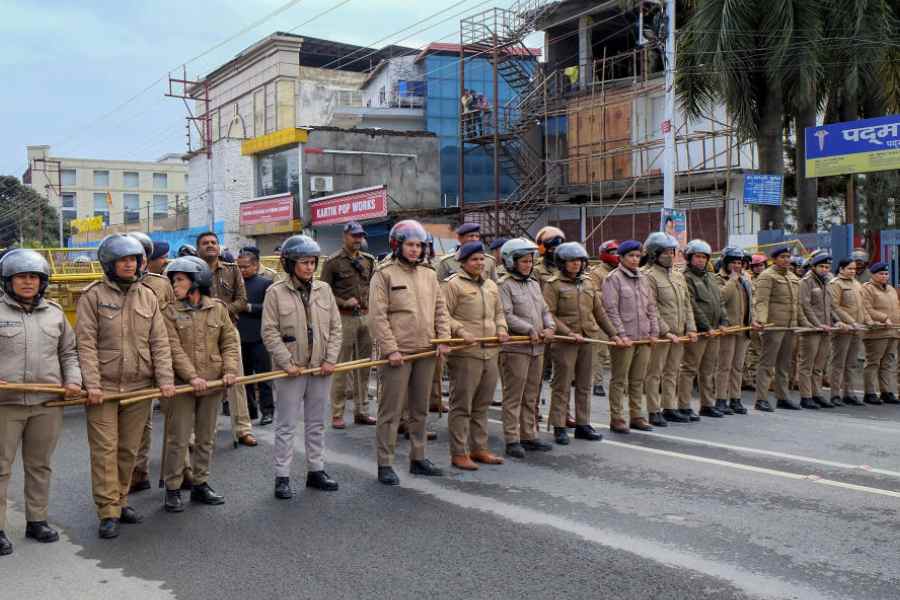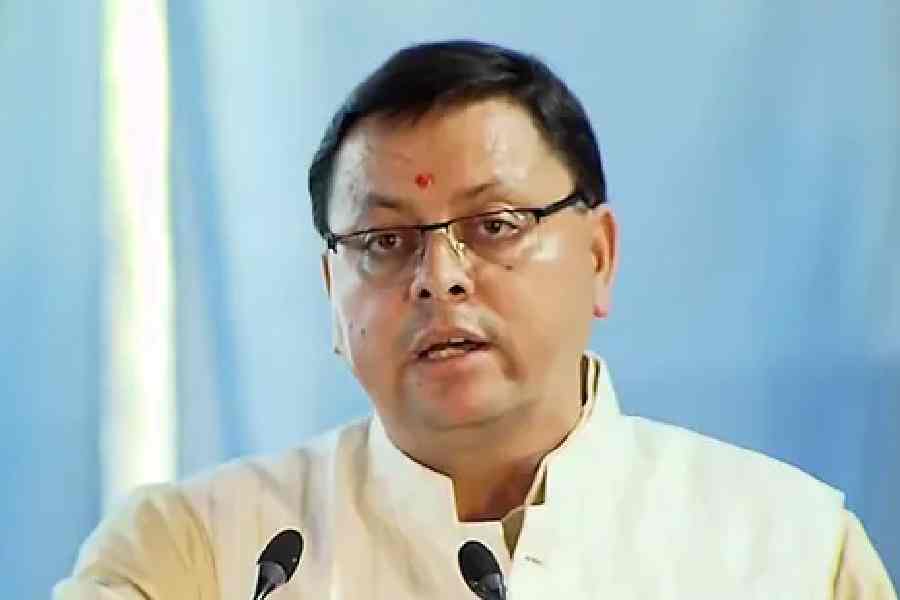The cabinet in BJP-ruled Uttarakhand has approved the final draft of a Uniform Civil Code (UCC) and is set to table it in the Assembly on Tuesday.
If the UCC is implemented, Uttarakhand will become the first state after Independence to adopt it. A UCC has been operational in Goa since the days of Portuguese rule.
The Opposition Congress alleged the Pushkar Singh Dhami government had not revealed the contents of the UCC and, along with other Opposition parties, boycotted an all-party meeting convened by Speaker Ritu Khanduri on the eve of a special four-day session of the Assembly that began on Monday.
Chief minister Dhami told reporters in Dehradun: “We invite all the political parties to discuss the provisions of the UCC in the Assembly during the four-day session. It is in the interest of all of us, and the Opposition parties should make it easy for us to clear the UCC in the House.”
Dhami said the UCC would be presented in the House at 11am on Tuesday as the first day had been set aside to express condolences for the deaths of legislators.
The Congress’s Yashpal Arya, the leader of the Opposition in the Assembly, alleged that the UCC's provisions had been kept a secret.
“We don’t know what is there in the UCC. The government should have distributed copies of the proposed UCC among all the MLAs a few days before the session so that we could have studied it and known how to present our stand in the Assembly,” Arya said.
The government has not shared with anybody the details of the proposed UCC, but it is largely believed that the idea is to make the system of marriage, divorce and inheritance uniform for Hindus and Muslims. Muslims follow the Shariah law in personal matters and oppose any government interference in their social customs.
Sources said the 740-page UCC draft, divided into four volumes, had recommended regulating live-in relationships.
“The government may start a portal and make it mandatory for those in a live-in relationship to register themselves. While the central government has already declared the instant triple talaq illegal, the Uttarakhand government may put in place provisions for harsher punishment and fines through the UCC,” a BJP leader said, requesting anonymity.
“Irrespective of their religion, Hindu and Muslim men and women would have the same rights when it comes to divorce. The practice of Halala and Iddat may be banned.”
Halala recommends that a divorced woman remarry before she can return to her ex-husband if he has uttered the instant triple talaq in anger and realised it was a mistake. Iddat is a mandatory period a woman has to remain single after divorce, or on the death of her husband, before opting for remarriage.
The Centre has banned the instant triple talaq and introduced a three-year jail term and a fine for those violating the Muslim Women (Protection of Rights of Marriage) Act, 2019.

Security personnel deployed near the Uttarakhand Legislative Assembly during a speacial session of the state assembly. PTI picture
The final draft of the UCC was submitted to chief minister Dhami recently by a five-member panel headed by a retired Supreme Court judge, Justice Ranjana Prakash Desai.
Security has been stepped up around the Assembly for the special session, which will continue till February 8.
“As in the past, we have placed barricades at entry points around the Assembly to stop any protests.... More than 200 constables and 100 inspectors have been placed in the periphery of the Assembly. We have also deployed mobile patrol parties at sensitive locations in the city,” Dehradun senior superintendent of police Ajai Singh said.
Dhami has multiple times attributed the BJP’s landslide victory in 2022, which earned it a second consecutive term in power in Uttarakhand, to its pre-poll promise of a UCC.










